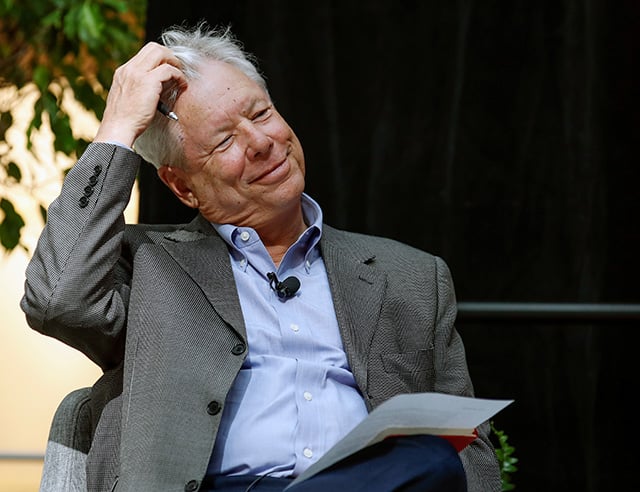A professor at the University of Chicago Booth School of Business, Richard Thaler’s advances in behavioral economics merited a Nobel Memorial Prize in Economic Science in October.

By studying the work of behavioral economist Richard Thaler, CFOs can make better decisions based on the behavioral patterns of their corporate partners and their employees.
A professor at the University of Chicago Booth School of Business, Thaler’s advances in behavioral economics merited a Nobel Memorial Prize in Economic Science in October.
But how can CFOs at Fortune 500 companies use Thaler’s work in ‘predictive irrationality’ to their advantage?
Thaler found that humans are influenced heavily by emotion and irrational decision-making.
In one of Thaler’s best-known experiments, he gave mugs to half the students in a class and asked them to assign a value to the mugs. Funnily enough, students who already owned a mug placed twice as high a value on them as those who didn’t. As a result, Thaler determined, people value something they already own, known as the so-called “endowment effect.”
Being better informed should lead to better decision-making in theory. But in an NFL draft-pick study, Thaler deduced that professional teams place too much emphasis, or value, on early picks, in large part because scouts absorb so much information they think they can predict who the good players are going to be. “The more information teams acquire about players, the more overconfident they will feel about their ability to make fine distinctions,” Thaler writes. Thaler’s research also shows that people have firm standards of fairness. Since most consumers don’t know what goods are truly worth, they determine value based on what seems “fair.” In a recession, employers tend to fire workers rather than cut their wages, perhaps out of a sense that workers will consider pay cuts to be “unfair.”
The lesson is that if irrational human behavior can be expected, then it can be motivated, or “nudged,” according to Thaler.



